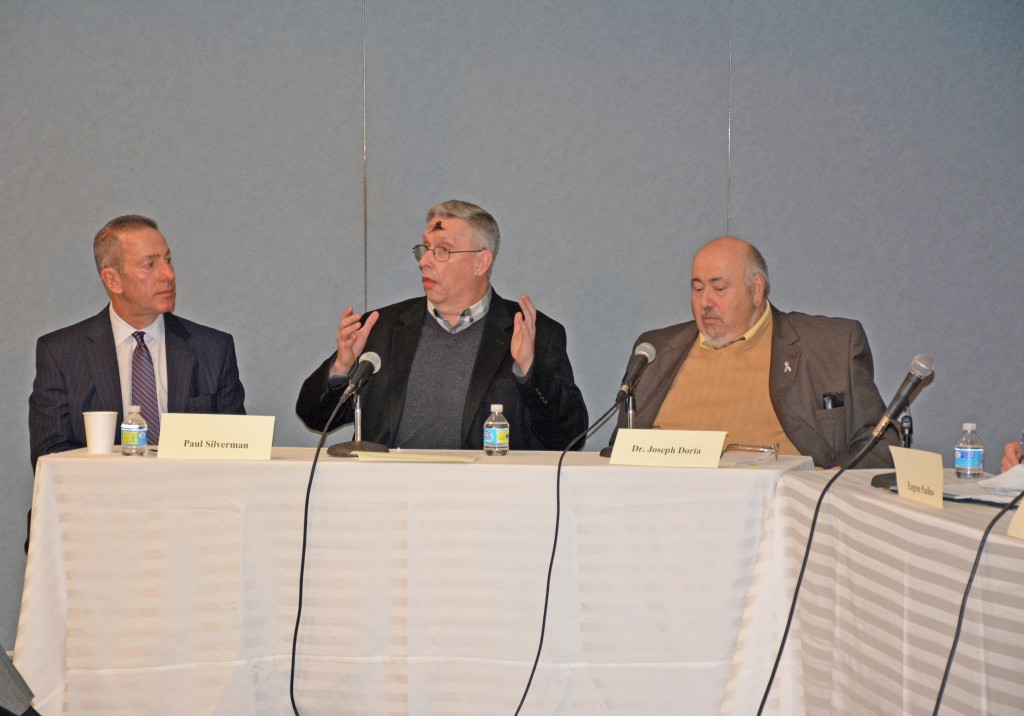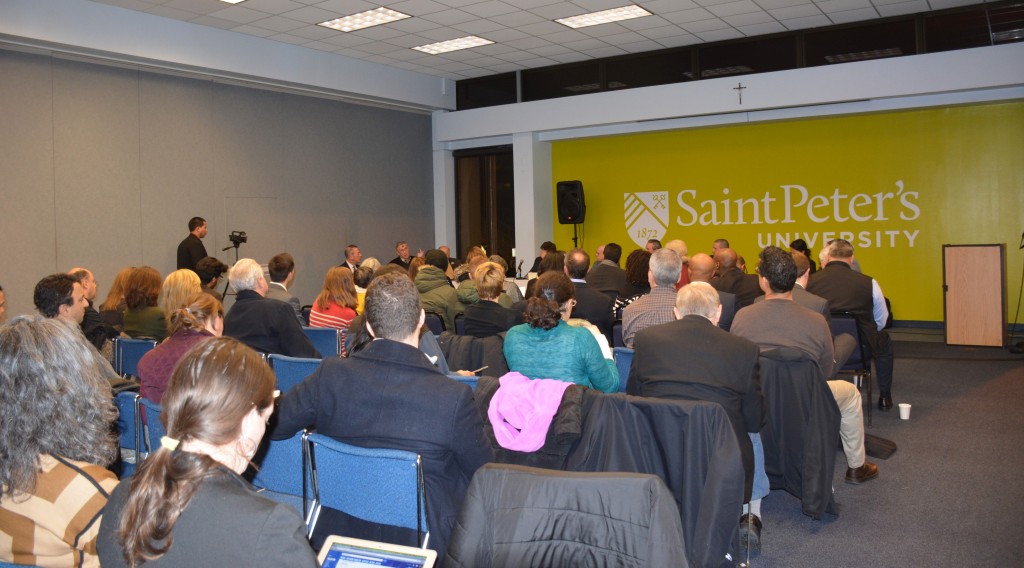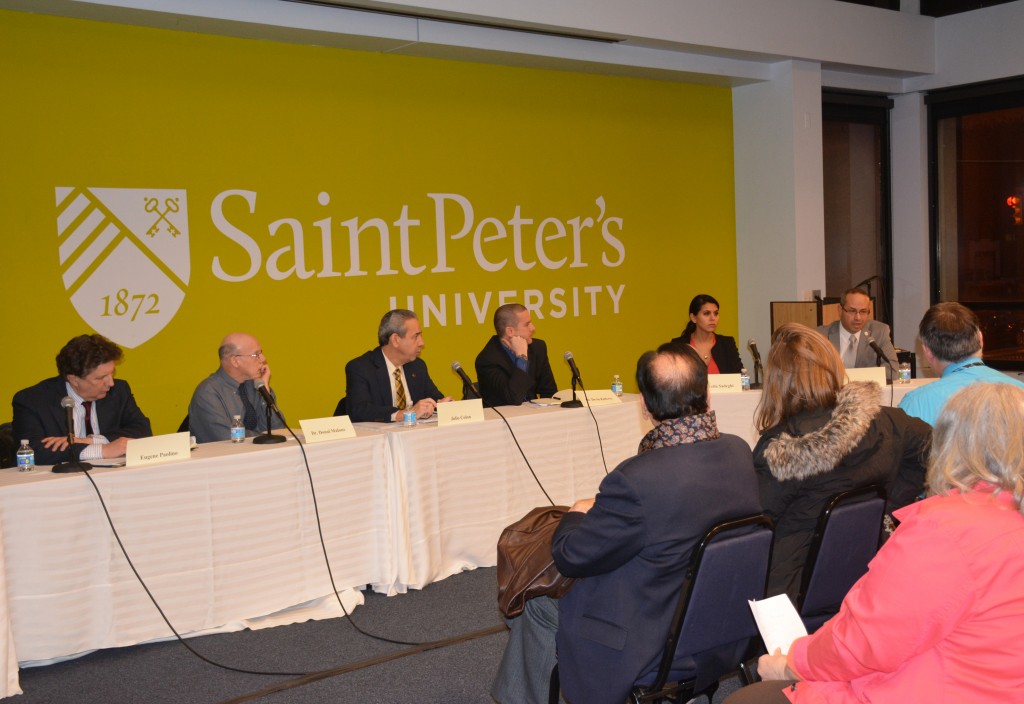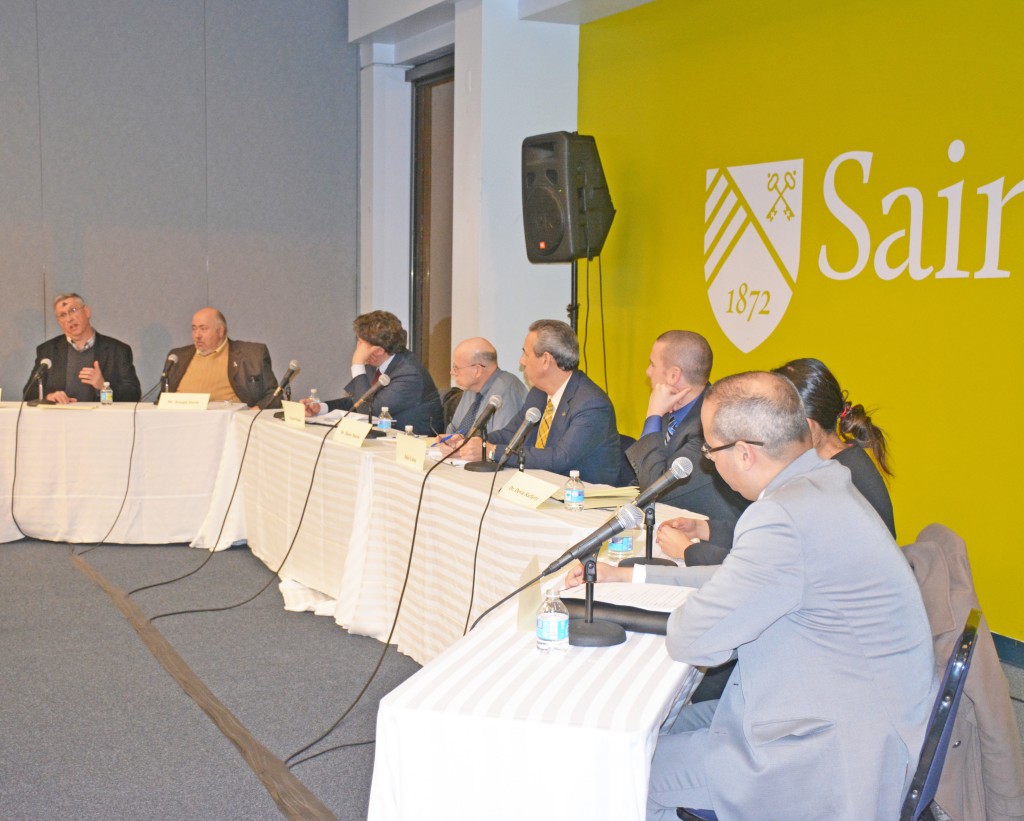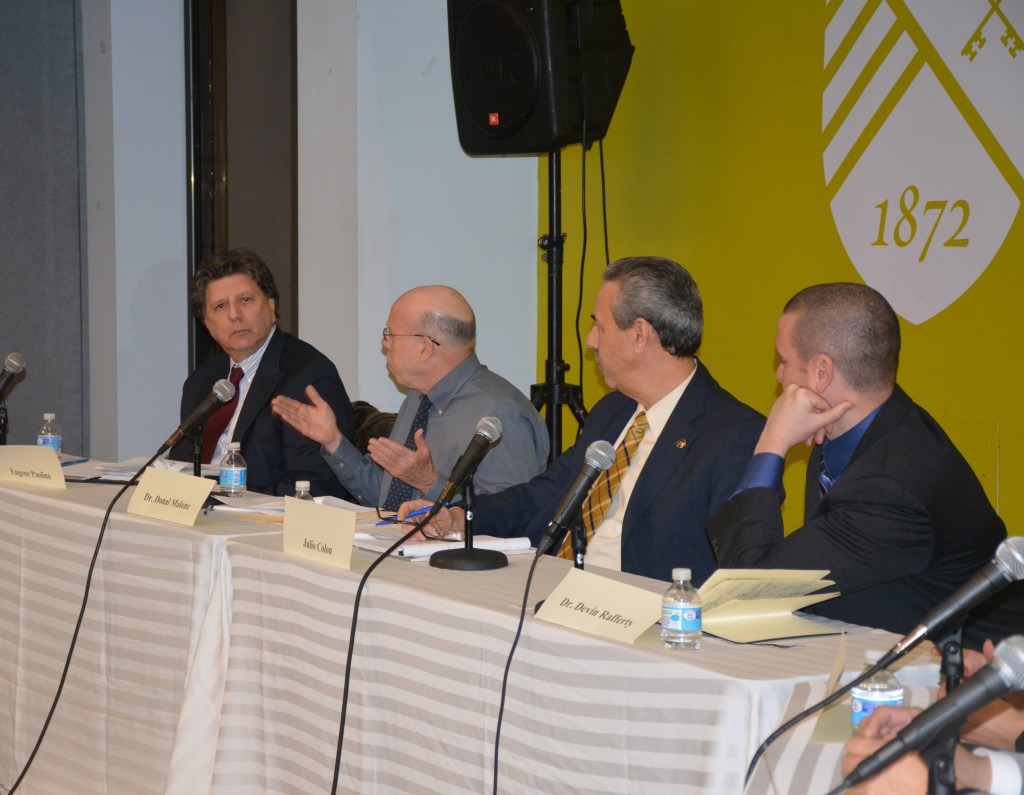The Democratic and Republican primary debates are not the only recent debates taking place. The Guarini Institute for Government and Leadership at Saint Peter’s University, in partnership with the Caulfield School of Education, recently presented a lively panel focused on the utilization of tax abatements as a strategy for neighborhood revitalization.
The panel was held on the Saint Peter’s University Jersey City campus and what better place to hold such a discussion than a city that was described as an emerging “destination of choice” in a recent article in The New York Times titled, “Moving to Jersey City, Join the Club.”
The panelists at the event were Paul Silverman, principal of SILVERMAN; Marcos Vigil, deputy mayor of Jersey City; Julio Colon, director of the division of housing assistance for the City of Newark; William O’Dea, Hudson County freeholder; Eugene Paolino, Esq., partner at Genova Burns,LLC; Donal Malone, Ph.D., associate professor of sociology at Saint Peter’s University; and Devin Rafferty, Ph.D., assistant professor of business and finance at Saint Peter’s University. Leila Sadeghi, Ph.D., executive director of the Guarini Institute for Government and Leadership, and Joseph V. Doria, Ed.D., dean of the Caulfield School of Education served as moderators for the event.
The Guarini Institute aims to provide a non-partisan forum for discussion of key public policy issues at the local, state and national level. The Institute sponsors a speaker series, roundtable discussions and other events to stimulate discussion around critical topics.
“Tonight’s panel is an excellent example of the kind of work we do,” said Dr. Sadeghi. “Our goal is to bring public policy to the forefront of citizen participation and engagement. We’ve learned that a grassroots approach does in fact work.”
Paolino, who has more than 30 years of experience in commercial law, real estate development, tax abatement and zoning and land use, shared his personal experience of the growth and change he has seen in Jersey City over the course of his lifetime. He reflected on his days as a student at Saint Peter’s Prep and how the area surrounding the school has transformed from dismal conditions to a bustling community made up of retailers and residents.
Real estate developer, Silverman, was certainly a component in this positive change. His real estate development company has restored historic landmarks, championed the development of mixed-use buildings and created residential, commercial, office and industrial spaces in Jersey City. “What sets us apart from other developers is we are focused on building neighborhoods and we seek unique businesses and cultural attractions,” he said.
While the revitalization of areas such as downtown Jersey City is evident, panelists such as Dr. Malone and Dr. Rafferty expressed reservations about the practice of tax abatements. Dr. Rafferty’s current research involves policies for sustainable development financing and he argued that there are better, more sustainable ways to revitalize a city beyond the use of trickle-down economics.
Dr. Malone is currently focused on research regarding programs and practices that facilitate development without displacement. His argument when it comes to tax abatements is that while they may appear to bring jobs into an area, in actuality many of the new jobs are filled through corporate relocation. Therefore jobs for local residents are not created and poverty still exists in other parts of the city.
Freeholder O’Dea acknowledged Dr. Malone’s concerns. He felt that there is value in offering tax abatements for a large company only if it would bring jobs to area residents. He discussed his efforts engaging with low-income and minority residents to help them secure union apprenticeship opportunities and ultimately long-term careers.
Colon has seen this shift in Newark first-hand. Colon manages Newark’s HUD entitlement funds, city subsidies for real estate development including affordable housing, oversees the tax abatement program and supervises the daily operations of the Division of Real Estate Finance and Housing Assistance. He explained that when it comes to tax abatement projects, Newark has changed the requirements for what jobs these projects will actually bring to city residents.
Deputy Mayor Marcos D. Vigil, who serves in Mayor Fulop’s administration and oversees economic development and real estate, discussed the plans for Jersey City moving forward under the Fulop administration. “We intend to use these incentives to try to offer as much affordable housing and economic development as we can in all areas of the city,” he said.
The complete spring 2016 schedule of events for The Guarini Institute for Government and Leadership at Saint Peter’s University is now available. Click here to learn more about upcoming programming.

